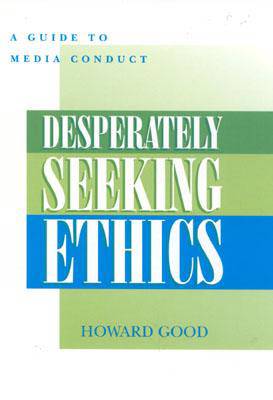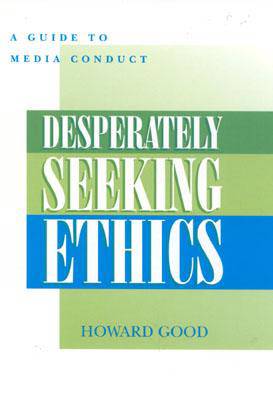
- Afhalen na 1 uur in een winkel met voorraad
- Gratis thuislevering in België vanaf € 30
- Ruim aanbod met 7 miljoen producten
- Afhalen na 1 uur in een winkel met voorraad
- Gratis thuislevering in België vanaf € 30
- Ruim aanbod met 7 miljoen producten
Zoeken
€ 108,95
+ 217 punten
Uitvoering
Omschrijving
Trends prevailing in the media suggest a seemingly disintegrating concept of media ethics. It is no surprise; being ethical is hard work and, could very well put a person in conflict with prevailing trends. Many of the people cited within the 13 essays of Desperately Seeking Ethics illustrate this--from Socrates and Martin Luther King Jr., who both died for their principles, to reporter David Kidwell of the Miami Herald who chose jail over testifying for the prosecution in a murder trial. This is not just another media ethics book. Engaging and non-conventional it breaks away from the usual text practice of presenting the ethical theories of well-known philosophers in watered-down form. Instead, the contributors, all of whom teach media ethics, select a poem, movie, song, speech, or other cultural document, analyze it for implied or explicit ethical lessons, and then apply the lessons of that work to a specific case that involved controversial media conduct. In addition to endnotes, each chapter contains questions for discussion and a list of further readings. Where possible, the contributors have included all or part of the poems, speeches, and other documents they analyze as sources of ethical instruction and inspiration.
Specificaties
Betrokkenen
- Auteur(s):
- Uitgeverij:
Inhoud
- Aantal bladzijden:
- 232
- Taal:
- Engels
Eigenschappen
- Productcode (EAN):
- 9780810846425
- Verschijningsdatum:
- 21/04/2003
- Uitvoering:
- Hardcover
- Formaat:
- Genaaid
- Afmetingen:
- 138 mm x 223 mm
- Gewicht:
- 367 g

Alleen bij Standaard Boekhandel
+ 217 punten op je klantenkaart van Standaard Boekhandel
Beoordelingen
We publiceren alleen reviews die voldoen aan de voorwaarden voor reviews. Bekijk onze voorwaarden voor reviews.











